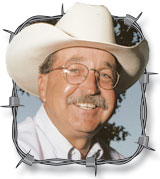I assumed there would come a time when I, based on a lifetime of experiences, would fail to be surprised by something I would see or hear. Not yet.
Last week, while riding in the car with my wife, she tuned the radio to her favorite channel. I never listen to that station, but we were operating under the “my car – my radio” rules, so I endured the tedious topics with a pleasant demeanor until one particular segment was devoted to a 10-minute interview with an American veterinarian. Since I have many good friends who are veterinarians, and I have a profound respect for their profession, I was relieved that there would now be a topic that interested ME. Or not. It seems that this particular veterinarian spent his free time finding and caring for sick or injures … squirrels.
Most of my veterinarian friends are general practitioners who tend to center their practice on farm animals, horses, or pets such as dogs and cats. I even have a friend who once specialized in elephants and traveled around the world to treat the pachyderms, and was instrumental in refining the science of artificial insemination for the beasts. But, squirrels?
As the vet began the interview, I expected him to talk about the misfortune of so many of the rodents being struck by vehicles due to their indecisiveness when crossing the road. Should they keep going, or does that split-second decision to turn back lead to their demise? But, no, he was a guest on the program to talk about something much more serious – an epidemic of obesity that is occurring amongst the population of long-tailed scurriers throughout the country; fat squirrels.
The learned doctor had concluded, based on his years of experience, that humans were responsible for this troubling epidemic. Squirrels around parks and nature areas were being fed treats by well-meaning people and the animals were gaining too much weight and becoming lazy. He went on to add that the proliferation of bird feeders over the past couple of decades were also contributing to the problem, as most of the feeders were not squirrel-proof and were making it too easy for the furry friends to find plentiful, high-calorie, bird seed.
The veterinarian also weighed in about the possibility that global climate change could possibly be adding to the squirrel’s obesity as well, since the acorn crop seemed to be increasing with these changes; providing an over-abundance of the rodent’s preferred diet. He concluded his guest appearance by reprimanding the public to refrain from feeding squirrels in the wild and encouraging everyone to make their bird feeders squirrel-proof. He never addressed the potential problem of obese wild birds. Probably fodder (no pun intended) for the next installment of the program.
Now, I’m sure the good doctor had his statements backed up by years of scientific data, but it seemed to me that he should have consulted with older people who had been around squirrels their entire life. Had he done that, and asked me about “obese squirrels,” I could have assured him that fat squirrels have been around longer than he has been alive. As a matter of fact, we even had a name for fat squirrels when I was a kid. We called them “dumplings.”






